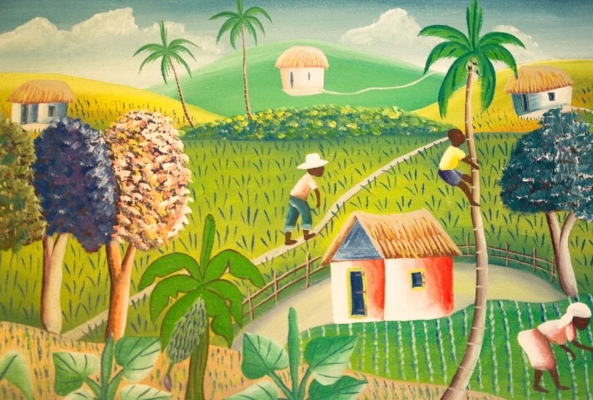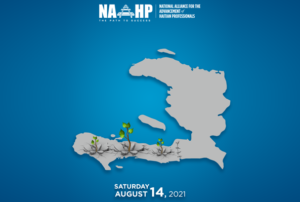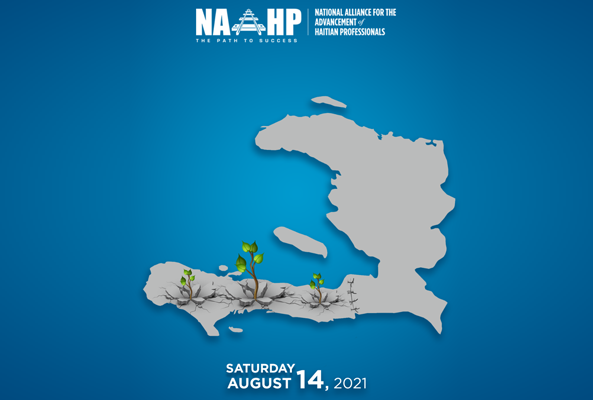
The Need for a New Identity or “Meme” for Haiti
While Haiti is known as the first Black Country to gain its independence, it seems that the country is equally known for being the most impoverished country in the Northern Hemisphere. Haiti has known few periods of political stability. Freedom from France was preceded by internal strife between the haves and the have nots that has endured to this day. The infighting among factions cannot simply be characterized as a battle between those of African descent and others. There is a lack of social cohesion and rallying point around what it is to be Haitian.
In this article, I propose for consideration aspects of what is or could become the essence of what it means to be Haitian. To present this idea, I first need to introduce the concept of memes. What is a meme? Memes (derived from the French word même, meaning the “same”) are to groups what DNA is to cells. Whereas for a biological organism, the information to reproduce is contained in the DNA; for a group, the set of instructions to reproduce itself are contained in memes. These can be values, belief systems, legends, myths, and traditions. While DNA is passed vertically from generation to generation, memes can be passed horizontally as well as vertically. For example, as an immigrant to America, I adopted some practices, such as Thanksgiving, from observing others around me as opposed to learning it from my parents. As a kid, I played marbles which is something that my parents, like most other parents, frowned upon. There was no other way for me to learn how to play marbles than to learn from other kids. Thus, both Thanksgiving and playing marbles were examples of horizontal transmission.
I would venture to say that every country has a meme just like every group has a culture. To paraphrase a management consultant, “Every company has a culture. It is either a culture by default or a culture of intent.” For most nations, the meme happens by default. However, some countries have memes that create greater bonds among their people and more success than those of others. A case could be made that for nations and empires to endure, there must be some greater tie that binds than the strength of the political elite or racial hegemony. Author Yuval Harare makes the case in the book Sapiens that one of the reasons the Roman Empire lasted for so long is because of the meme that defined what it meant to be a Roman. The conquered nations (at least their elites) were prompt to adopt the habits of Roman citizens. There was a lot of pride in declaring, “I am a Roman citizen.”
While, I am by no means a sociobiologist expert, I would venture to say that there are two attributes required for memes to take hold. First, a meme cannot exclude a group of its own citizens. Second, a good chance (although not equal) for upward mobility must exist. In America, I believe the meme that brings all of us together is the idea stated in the Declaration of Independence “…that all men are created equal, that they are endowed by their Creator with certain unalienable rights, that among these are Life, Liberty and the pursuit of Happiness.” One of the reasons that so many people see America as the “city upon the hill” and a beacon of hope is because of this idea that in America, no matter your background, you can be anything you want to be. I believe this meme is what has allowed America to become and to continue to be the dominant political and economic power in the world. We can debate whether America is a country where everyone can indeed aspire to be what they want to be. The fact is that most people (and this transcends socioeconomic strata) believe it to be true. Someone in rural Appalachia is as likely to buy into this ideal of America as much as the fat cat on Wall Street.
As for Haiti, most of the country’s people take pride in being the first Black Country to gain independence. This independence was led by former slaves including Toussaint and Dessalines. There were also mulattos (children of white slaveholders), like Pétion, who were part of the revolt against the French. After Haiti’s independence, the infighting has continued between those who called themselves children of Dessalines and others who might call themselves children of Pétion. After the revolution in Haiti, the country welcomed waves of mostly European immigrants, and more recently, migrants from the Middle East and even Asia. I’ve met Haitians of Philippine and Chinese origins. Thus, I submit that the idea of Haiti as the first non-White Republic to gain its independence is a divisive meme. It is not one that non-Black Haitians can relate to.
So, what should be our meme, the essence of our identity? It would be preposterous to think that I or any single individual could articulate it. Of course, I do have ideas. But what’s more important is that we need Haitians across the socioeconomic strata to lend their voices to the discussion and be heard.
Here is what resonates and inspires me as a Haitian and what I would like to see recognized as a part of our national identity and considered for a meme. Haitians have a joie de vivre (“joy of living”), resilience, eternal hope for a better future despite centuries of internal conflict, corrupt leadership and natural disasters. I believe this meme is best captured in the saying “L’espoir fait vivre” (“hope brings life”). Haiti is a country where many citizens already have this infectious joie de vivre. They are actively seeking to create a better future no matter what the circumstances are for themselves and their fellow citizens. This joie de vivre brings together Haitians from the different corners of the planet, those who seem themselves as children of Dessalines, children of Pétion or part of a more recent wave of migration to beat the odds and unite under a banner of hope for the future.
I hope that our search for a meme will be an inspiration for other nations. With declining birth rates in Western nations, integrating migrants from countries with vastly different cultures is not just desirable, it is a necessity to guarantee that there are enough workers to support social safety nets and provide services that cannot be outsourced beyond a given nation’s borders. Think, for example, of what it will mean to be Japanese, Canadian, French or a citizen of any Western European country 20 or 40 years from now. Giving the browning of the globe, there is no way that national identities in these countries can continue to be defined by race or ethnicity.
In Haiti, for very different reasons we need a new meme to unite the country’s people. Our future depends on it. Let’s be the first country in the first 21st century to build an identity on what binds us and serves our needs as opposed to an identity built on the vestiges of the past.

 English
English Français
Français Donate
Donate Partner
Partner Shop
Shop Login
Login










